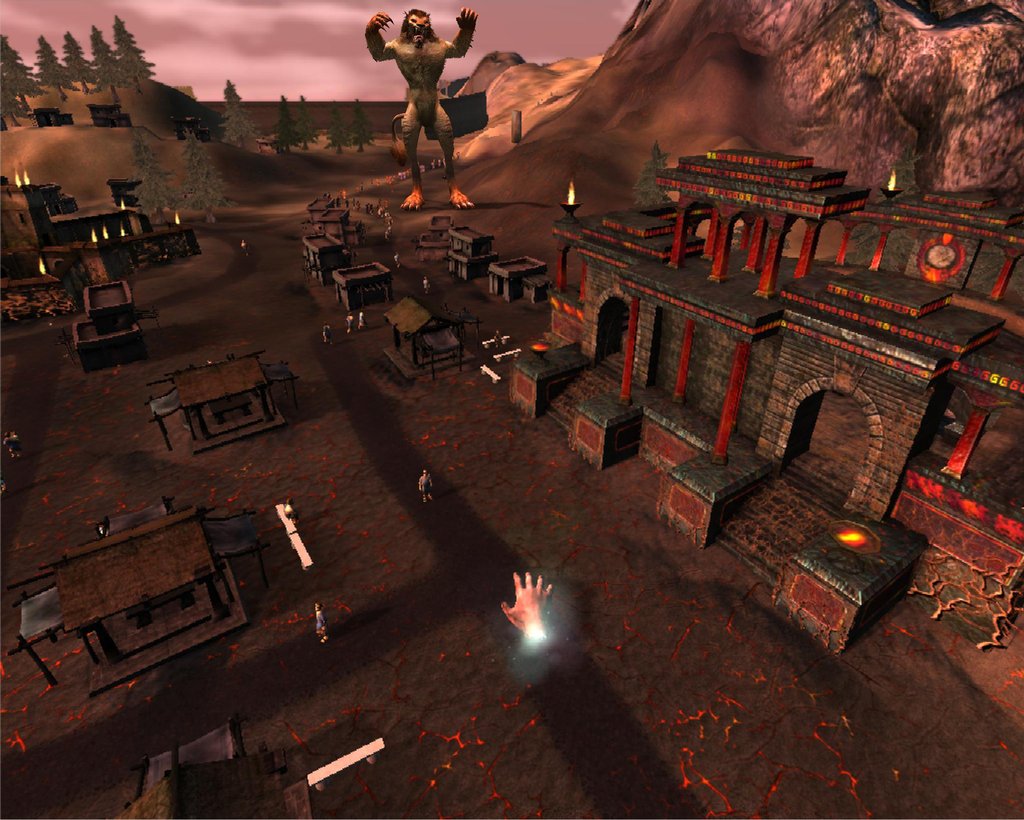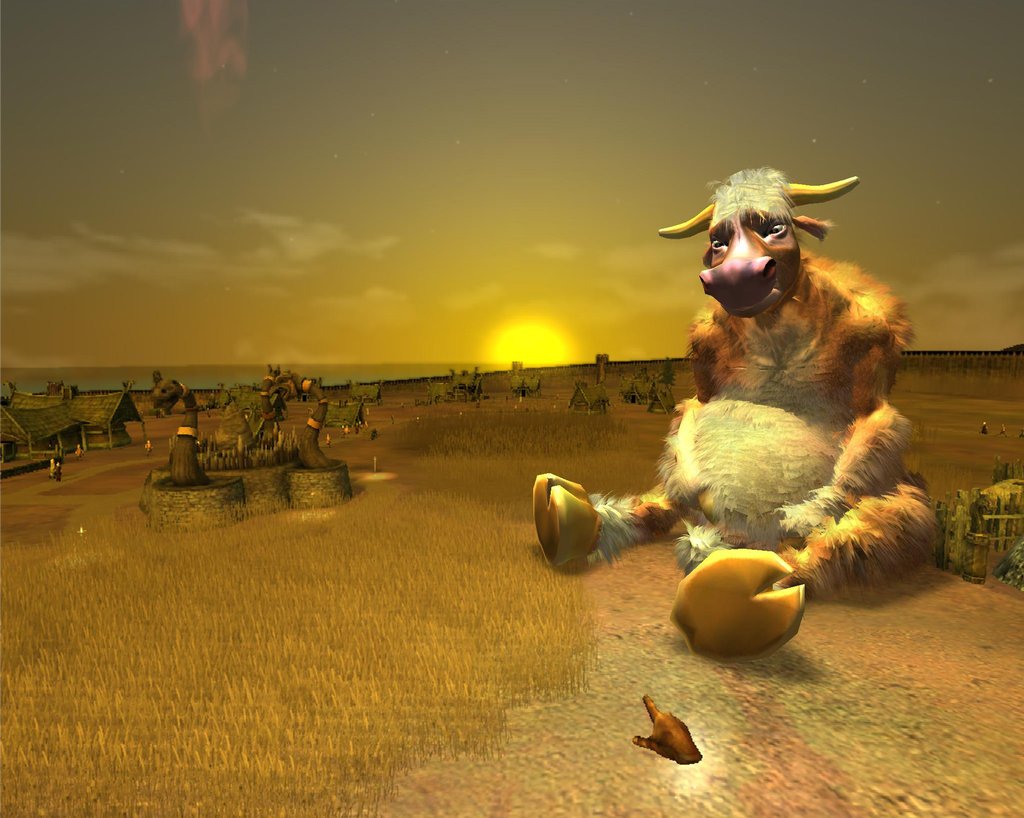Black & White 2 Updated Preview - City Building vs. Strategy
Brush up on the basics of building and conquering in Lionhead's upcoming strategy sequel, and watch an all-new video that demonstrates both.
You can't really discuss Black & White 2 and its developer Lionhead Studios without talking about big strategy games and big reputations. After all, the upcoming strategy sequel will have an ambitious, even epic, scope...and the studio received mixed reactions about the first Black & White game after so many lofty promises had been made. Designer Peter Molyneux assures us that he's aware of the expectations, and the skepticism, of the audience of game players he must win over (and win back) with the sequel. To that end, Molyneux has enlisted the help of veteran game designer Ron Millar (whose previous credits include some of Blizzard's breakthrough strategy games) to focus on the game's strategic battles while Molyneux focuses on the game's expanded city building.

As Lionhead tells it, while Black & White 2 will still be a "god" game in which you take the perspective of a sky-dwelling deity, the sequel will essentially be two games in one. On one hand, you can approach the game as a "god of peace," by focusing on supporting your fledgling village of followers in building a capital city so grand that everyone else in the world will want to pick up stakes and move in. On the other, you can approach the game as a "god of war," who focuses on building powerful armies to crush all opposing civilizations and rule the world as its supreme military power.
As a peaceful, city-building god, you'll sponsor a village of humans who belong to one of five different nationalities (the Greeks, the Egyptians, the Japanese, the Aztecs, and the Norse). Each nation will have its own distinct architectural style, but all five will have at least one thing in common--the ability to expand from a tiny village into a bustling metropolis. To do so, you'll be able to assign individual villagers to specific duties using the game's context-sensitive AI--that is, you can use the game's primary interface tool (your own disembodied, godly hand) to pick up villagers and drop them, for instance, next to a partially completed building, which will cause them to automatically become carpenters. You'll also need farmers, shepherds, and other productive members of society to build out your holdings and eventually construct granaries, religious temples, and palaces--even a great architectural wonder that will channel your divine powers. But in order to have a productive working populace, you'll need to make sure they reproduce (by placing a male and female worker next to each other so that they produce offspring by "hugging") and that they stay healthy by keeping your cities sanitary and clean. You'll even be able to manipulate the flow of time by keeping the sun in the sky for longer periods of time--this will keep workers in the field longer but will also tire them out. If you succeed in building a fabulous city, villagers from nearby towns will pick up and move to your borders, requesting permission to move into your marvelous realm. You'll be able to assimilate entire nations in this way, similar to the effects of culture in Firaxis' Civilization III.
As a war god, you'll also take control of one of the game's five nations, but you won't be spending quite as much time on your architecture. Your peaceful villagers can be conscripted into your army once you build an armory and drag the commission flag from it out to your territory. This will set your war machine in motion and will let you build huge armies of swordsmen, archers, cavalry, and siege engines (like catapults that can break through walls). As a god of war, you'll find yourself rigorously training your villagers to be one of many, many, many faceless soldiers who will die in your name. While they won't be especially happy about this situation, you'll at least be able to manage them in large numbers by drafting them into interconnected companies that will fall into line and march in formation.

If you do choose to pursue directed aggression over diplomacy, your army will most likely be spearheaded by your gigantic creature ward. Like in the original Black & White, you'll have control over a gigantic animal that walks upright--and this animal companion of yours will change demeanor and appearance based on how you treat it. The more your animal companion is "disciplined" (that disembodied hand of yours doesn't just pick things up; it can also be used to slap things around), the more it becomes a mindless attack dog, ready to lead your armies into battle but not to do much else. Torturing your creature is a decidedly "evil" thing to do, and if you decide to become an evil god, your town's architecture will also reflect your disposition by being darker and more forbidding; the very ground beneath your creature's feet will be corrupted into marshland. On the other hand, if you pursue the path of peace and use your godly hand to gently stroke your creature as a sign of encouragement, your creature will become much happier and more autonomous--prancing about your cities while wildflowers bloom in its wake.
These are the basics behind Black & White 2's gameplay, and you can get further information right from the developers at Lionhead Studios in our most recent exclusive trailer. In the meantime, the game is scheduled for release, in Molyneux's own words, "in fall." Stay tuned to GameSpot for more updates.
Got a news tip or want to contact us directly? Email news@gamespot.com
Join the conversation